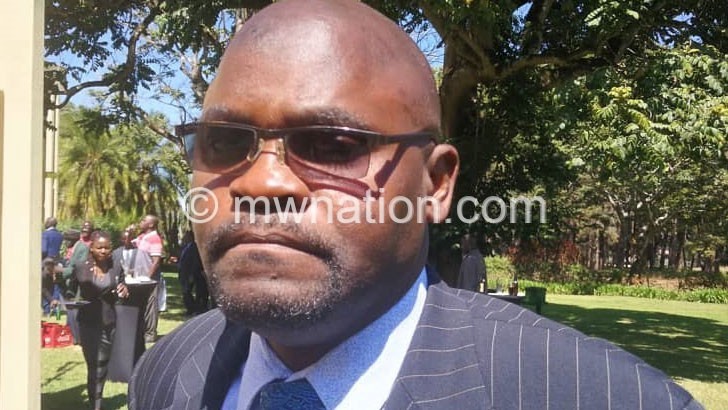Anti-graft woes
- K42bn allocated to MDAs in past 3 years to fight corruption
- Controlling officers suppressing agenda
The fight against corruption in the public service is a fairytale—with billions allocated to the exercise annually, but nothing to show for it—because officers mandated to champion it lack commitment.
Deputy Secretary to the President and Cabinet Janet Banda said in a written response to a questionnaire, that there is “non-commitment” to the anti-corruption drive by some controlling officers while civil society groups allege that controlling officers are not fighting the vice because they also benefit from it.

Following the launch of the National Anti-Corruption Strategy (NACS II) 2019-2024 in 2019, controlling officers in ministries, departments and agencies (MDAs) are supposed to establish institutional integrity committees (IICs) to spearhead prevention of corruption at institutional level.
There are 144 MDAs, which include district, city and municipal councils and parastatals, but three years after NACS II’s launch, some controlling officers are yet to establish the IICs.
Besides establishing the IICs, the NACS II 2019-2024 stipulates that each MDA is required to allocate a minimum of one percent in their other recurrent budgets for implementation of anti-corruption activities.

For the three years NACS II has been in existence, government has allocated about K4.4 trillion (K1.3 trillion in 2019/20, K1.7 trillion in 2020/21 and K1.4 trillion this fiscal year) to the MDAs’ recurrent budgets, translating to about K42 billion meant for anti-corruption programmes.
While attributing failure to establish IICs to financial constraints due to low funding levels, Banda said some controlling officers have not been utilising these funds for the activities “out of sheer non-commitment to the anti-corruption agenda”.
She also explained that the one percent allocation was not ring-fenced, and is not specially funded, meaning if the funds are not used for the intended purpose, they are normally used for other activities within the institution.
“There is also a risk that the resources can be misallocated or misappropriated,” said Banda.
The IICs are designed to advocate for integrity measures and plans within institutions’ operations to promote individual and system integrity and corruption prevention.
She said: “Recognising that poor service delivery is a recipe for corruption, IICs champion publicity of service charters in institutions as accountability mechanism and a way of promoting client satisfaction.”
Regulations [NACS II] mandates the Legal Affairs Committee of Parliament to summon controlling officers who are not complying with the requirement, but no officer has been reprimanded for failing to comply with the policy.
National Integrity Committee (NIC) chairperson Jeff Kabondo observed NACS II’s recognition of the Legal Affairs Committee’s powers to summon non-complaint officers: “As such we expect that such officers will be reported to the committee for appropriate action.”
He said IICs help to raise and sustain awareness about corruption and are also expected to promote the culture of integrity in all systems or processes in their respective MDAs.
“Promoting the culture of integrity in government institutions is key in fighting corruption. Controlling officers need to support the functioning of IICs by availing adequate resources and even moral support,” said Kabondo.
NIC is a multi-sectoral body in the governance of NACS II that provides leadership and direction to the implementation, coordination and management of NACS II activities and has 12 representatives from 12 pillars.
The pillars include the Executive (chaired by the Deputy Secretary to the President and Cabinet), the Legislature, Judiciary, Local Government, private sector, non-governmental organisations/civil society, faith-based organisations, media, youth, women, academia and traditional leaders.
Legal Affairs Committee chairperson Peter Dimba said they are yet to subpoena non-compliant controlling officers on their failure to establish IICs because they have not received a report from ACB on the errant MDAs. ACB promised to respond to our inquiry on their role to ensure MDAs’ compliance but did not do so by press time.
Human Rights Defenders Coalition (HRDC) chairperson Gift Trapence has since admonished the non-compliant officers, arguing that they are resisting to use the money “because they are beneficiaries of broken and abused systems that aid fraudulent transactions”.
“The IICs are vital in the enhancement of professionalism and fight against corruption. HRDC is, therefore, calling upon government to enforce operationalisation of the IICs in public institutions.”
“This will strengthen professionalism, accountability and adherence to policies in government ministries, departments and agencies,” he said.
While agreeing with Banda on erratic funding to integrity systems, the National Anti-Corruption Alliance chairperson Moses Mkandawire also said most officers benefit from the status quo.
“But such practices are learnt from the higher level. If the higher level is serious, and regularly condemns or rebukes such practices, things will change; otherwise, it will be the same rhetoric.
“But, more importantly, even if resources come, it is difficult to create and support integrity systems and structures because mostly, there is no accountability, transparency and openness when [MDAs] conduct their business,” he said.
Government, through ACB, is implementing NACS II, which is a continuation of the National Anti-Corruption Strategy (NACS), an anti-corruption drive launched in 2008 by former president Bingu wa Mutharika.
Bingu appointed the first cohort of the NIC in 2010 to oversee the implementation of NACS while President Lazarus Chakwera commissioned the current NIC last December.





